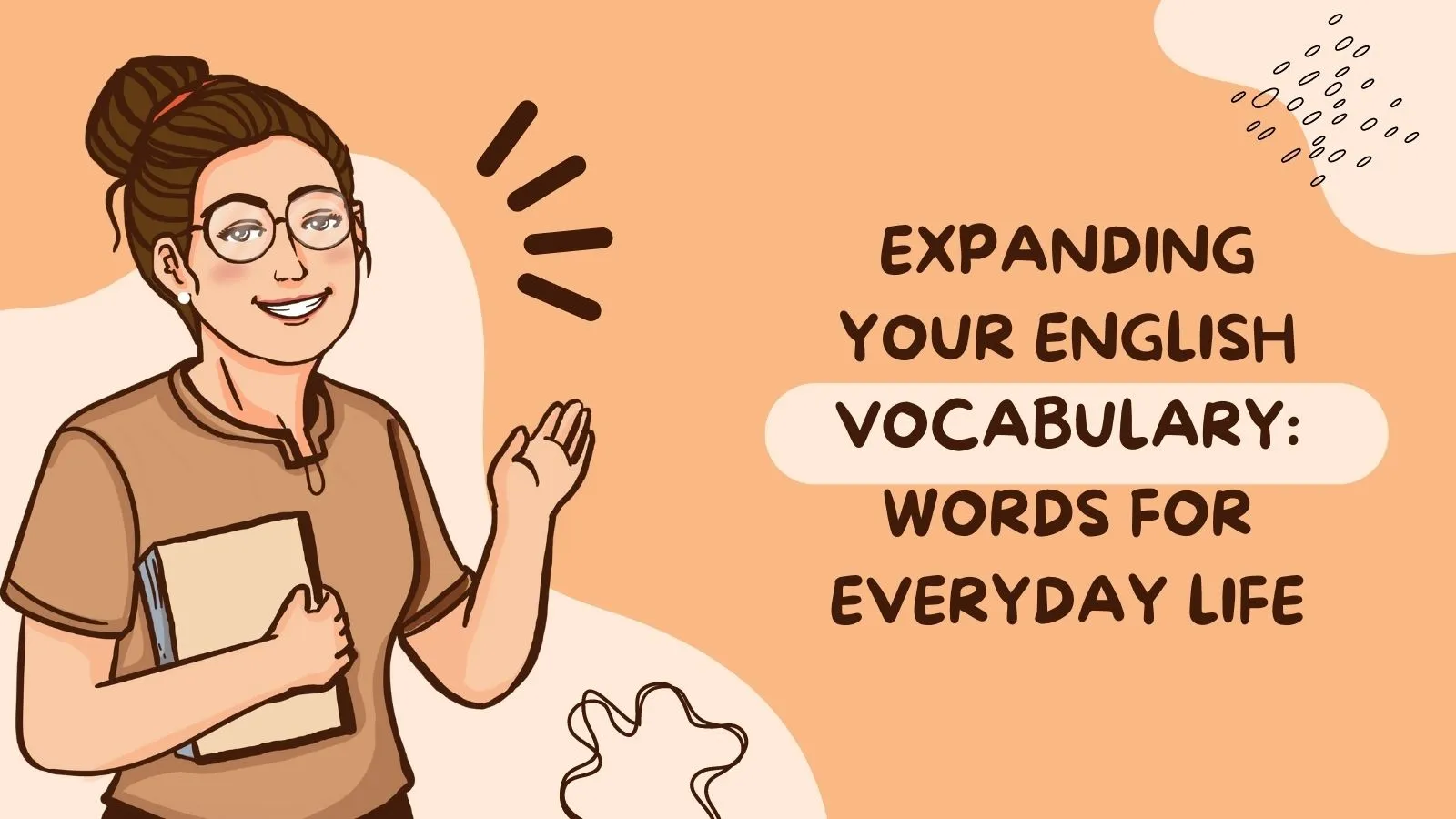Why Expanding Your English Vocabulary Is Needed?
Do you remember the last time you were lost in a book, completely absorbed by the author’s captivating words? Or when you felt truly connected to a person because of the depth of their conversation?
All this magic lies in the power of words. Expanding your English vocabulary isn’t just about impressing others or acing language tests—it’s about enhancing your ability to communicate, express, and connect.
It’s about experiencing the world with greater richness and depth. So, grab your cup of tea, get comfy, and let’s embark on this exciting journey to the world of words!
The Power of a Fun Conversational Tone
Picture this: You’re at a party, and there are two groups of people chatting. One group has a serious, formal conversation while the other group is lively, laughing, and clearly having a good time.
Which group would you be drawn to? Most of us would choose the second, right? That’s the power of a fun conversational tone. It’s engaging, relatable, and simply enjoyable.
And guess what? It doesn’t require a degree in comedy; just a dash of humor, some playful words, and an open heart.
Understanding Conversational English
What is Conversational English?
Before we delve deeper, let’s clarify what conversational English is. It’s the casual, informal language we use in daily chats with friends, family, and colleagues.
It’s not rigid or packed with complex words, but rather fluid and filled with expressions, idioms, and slang. But don’t be fooled by its simplicity.
Conversational English can be as expressive and nuanced as any Shakespearean sonnet, and mastering it is the key to fitting in and building strong relationships.
The Role of Tone in Conversations
Imagine reading a text message that says, “Great job.” Seems positive, right? Now imagine it’s followed by an eye-roll emoji. Changes the whole meaning, doesn’t it?
That’s the role tone plays in our conversations. It adds depth, conveys feelings, and transforms meanings. And in verbal communication, it’s not just about what you say, but how you say it.
A playful tone can make the ordinary extraordinary, and a fun conversation can turn a mundane day into a memorable one.
The Art of Fun Conversations
Elements of Fun Conversations
So, what exactly makes a conversation ‘fun’? Is it a string of jokes? Witty remarks? Puns and wordplays? While humor certainly plays a part, fun conversations are also about curiosity, surprise, shared interests, and genuine engagement.
They’re about listening intently, responding thoughtfully, and making the other person feel valued. They’re about being present, being real, and being human.
How to Inject Humor into Conversations
Ever noticed how some people can find humor in the most ordinary situations? That’s because humor is less about the content and more about the perspective. It’s about seeing the lighter side of life, appreciating the absurd, and not taking oneself too seriously.
To inject humor into your conversations, try sharing funny anecdotes, making light-hearted observations, or simply laughing at life’s little ironies. Remember, humor is the spice of conversation, but not the main course. It’s there to enhance the taste, not overpower it.
Expanding Your English Vocabulary
The Importance of a Rich Vocabulary
Have you ever found yourself struggling to express a thought or emotion because you couldn’t find the right words? It’s a bit like having a beautiful landscape in front of you, but only a few colors to paint it with.
A rich vocabulary not only allows you to express yourself more accurately and effectively but also enables you to understand others better.
It broadens your horizons and opens up a world of new ideas and perspectives. After all, every word is a brushstroke in the painting of communication.
Techniques to Expand Your Vocabulary
So, how do you go about expanding your vocabulary? Here’s a secret: It doesn’t require memorizing a dictionary. Instead, try these techniques:
Vocabulary for Everyday Life
Essential Words for Daily Conversations
When it comes to everyday conversations, it’s not about using fancy or complicated words, but rather about choosing the right words. Words that convey your thoughts clearly and precisely.
Words that resonate with the listener. Words that are suitable for the context. Here are some essential categories of words for daily conversations:
Understanding Idiomatic Expressions
Idiomatic expressions are phrases that have a meaning different from the literal meaning of the individual words.
For example, ‘kick the bucket’ doesn’t have anything to do with kicking or buckets; it’s an idiomatic expression that means ‘to die’. These expressions add flavor to the language and make conversations more lively and interesting.
They may seem strange at first, but once you get the hang of them, you’ll find them popping up everywhere!
Implementing a Fun Conversational Tone
Tips for Using a Fun Conversational Tone
So how do you bring a fun conversational tone into your everyday chats? Here are a few tips:
Practice Scenarios for Fun Conversational Tone
Practice makes perfect, right? Here are some scenarios where you can practice using a fun conversational tone:
English Language Challenges
Overcoming Language Barriers
If English isn’t your first language, you might face some challenges while trying to expand your vocabulary or use a fun conversational tone. But remember, every expert was once a beginner. Here are some strategies to help you overcome these hurdles:
Strategies for Non-Native English Speakers
If you’re a non-native English speaker, here are some additional strategies to improve your English skills:
The Impact of Improved Vocabulary
Personal Growth and Improved Vocabulary
Learning new words isn’t just about language—it’s about life. Every word we learn opens a window to a new concept, a new culture, or a new way of thinking. It enriches our understanding of the world and ourselves.
It makes us more empathetic, as we can understand and express a wider range of emotions. It makes us more creative, as we have more colors to paint our thoughts with. In short, improving our vocabulary is a journey of personal growth and self-discovery.
Career Advancements with Better Vocabulary
Have you ever wondered why good communication skills are highlighted in almost every job description? That’s because, in the professional world, ideas are as powerful as one’s ability to express them.
A rich vocabulary can make you a more persuasive speaker, a more insightful writer, and a more effective communicator. It can help you nail that job interview, win that client, or lead that team.
So, whether you’re a student, a job seeker, or a professional, investing in your vocabulary is one of the best career decisions you can make.
Tools and Resources for Vocabulary Expansion
Recommended Books and Apps
Online Platforms for Vocabulary Enhancement*
Final Thoughts…
Recap of Learning Points
Expanding your English vocabulary and using a fun conversational tone are powerful tools for personal and professional growth.
They enable you to express yourself more effectively, understand others better, and make your conversations more engaging and enjoyable.
With regular practice, the right strategies, and a bit of humor, you can transform your conversations and connections.
Encouragement for Continuous Learning
Remember, language learning is a journey, not a destination. So, keep exploring, keep learning, and most importantly, keep conversing.
Because every conversation is an opportunity to learn, to connect, and to grow. So, go ahead and turn your everyday chats into extraordinary conversations. Happy talking!

